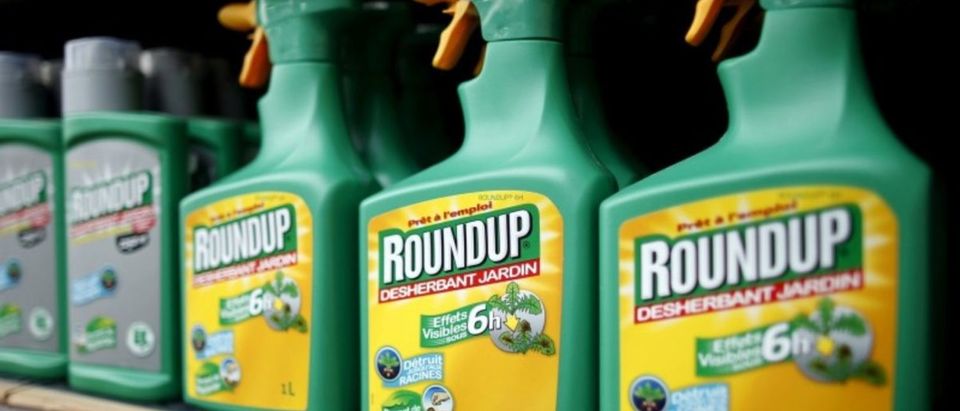The United Nations’ cancer agency edited contradictory data out of a high-profile study on whether a common pesticide ingredient caused cancer in humans, according to documents.
The International Agency for Research on Cancer’s (IARC) 2015 study found that the chemical glyphosate most likely caused cancer in humans, setting off an international political and legal fight over the effects of pesticides.
However, Reuters obtained a draft copy of IARC’s 2015 study, which shows edits made to bolster evidence that glyphosate could cause cancer in humans.
IARC scientists removed “multiple scientists’ conclusions that their studies had found no link between glyphosate and cancer in laboratory animals,” Reuters reported of the changes, noting that animal testing was largely how IARC justified its conclusion.
“In each case, a negative conclusion about glyphosate leading to tumors was either deleted or replaced with a neutral or positive one,” Reuters reported of the 10 major changes made to IARC’s draft document.
The draft chapter on animal testing was obtained through litigation by the agro-giant Monsanto. Glyphosate is a key ingredient in the company’s widely-used pesticide RoundUp. A group of 184 plaintiffs in California are suing Monsanto, citing the 2015 IARC report as proof that pesticides gave them cancer.
“IARC members manipulated and distorted scientific data” in their 2015 study, Monsanto told Reuters. Because of the secretive nature of IARC’s assessment process, Reuters was only able to review a draft for one chapter.
So far, IARC’s study is the only major assessment to label glyphosate as carcinogenic to humans. The U.S. Environmental Protection Agency, European Food Safety Authority and the World Health Organization all reached opposite conclusions on the chemical.
The European Food Safety Authority ruled earlier this year that “the available scientific evidence did not meet the criteria to classify glyphosate as a carcinogen.”
However, the group still says that glyphosate is “a substance causing serious eye damage and being toxic to aquatic life with long-lasting effects.”
IARC is a semi-autonomous body of the World Health Organization, which contradicted IARC’s findings about one year after its 2015 glyphosate assessment. An ongoing legal case against Monsanto also revealed that a National Cancer Institute scientist withheld new data from IARC showing glyphosate did not cause cancer.
The researcher said that including the data would have made it harder for IARC to label glyphosate as probably cancerous. Congress is investigating the matter.
South Carolina Republican Rep. Trey Gowdy asked the National Institute of Health in August for documents related to the scientist who withheld information from IARC.
Follow Michael on Facebook and Twitter
All content created by the Daily Caller News Foundation, an independent and nonpartisan newswire service, is available without charge to any legitimate news publisher that can provide a large audience. All republished articles must include our logo, our reporter’s byline and their DCNF affiliation. For any questions about our guidelines or partnering with us, please contact licensing@dailycallernewsfoundation.org.


